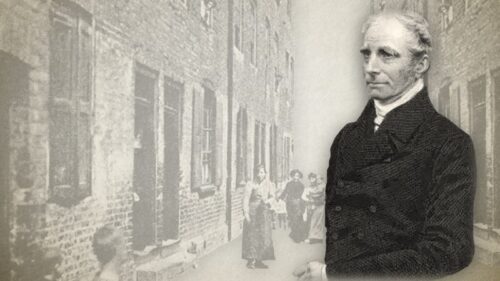-
214 Arians
ARIANS Followers of Arius, a presbyter of the church of Alexandria, about 315, who maintained that the Son of God was totally and essentially distinct from the Father; that he was the first and noblest of those beings whom God had created--the instrument, by whose subordinate operation he formed the universe; and therefore, inferior to the Father both in nature and dignity: also that the Holy Ghost was not God, but created by the power of the Son. The Arians owned that the Son was the Word; but denied that word to have been eternal. They held that Christ had nothing of man in him but the flesh, to which the word, was joined, which was the same as the soul in us.--The Arians were…
-
213 Sabellians
SABELLIANS A sect in the third century that embraced the opinions of Sabellius, a philosopher of Egypt, who openly taught that there is but one person in the Godhead. The Sabellians maintained that the Word and the Holy Spirit are only virtues, emanations, or functions of the Deity; and held that he who is in heaven is the Father of all things; that he descended into the Virgin, became a child, and was born of her as a son; and that, having accomplished the mystery of our salvation, he diffused himself on the apostles in tongues of fire, and was then denominated the Holy Ghost. This they explained by resembling God to the sun; the illuminated virtue or quality of which was the Word, and…
-
212 Trinitarians
TRINITARIANS Those who believe in the Trinity.
-
211 Mennonites
MENNONITES A sect in the United Provinces, in most respects the same with those in other places called Anabaptists. They had their rise in 1536, when Menno Simon, a native of Friesland, who had been a Romish priest, and a notorious profligate, resigned his rank and office in the Romish church, and publicly embraced the communion of the Anabaptists. Menno was born at Witmarsum, a village in the neighbourhood of Bolswert, in Friesland, in the year 1505, and died in 1561, in the duchy of Holstein, at the country-seat of a certain nobleman, not far from the city of Oldesloe, who, moved with compassion by the view of the perils to which Menno was exposed, and the snares that were daily laid for his ruin,…
-
210 Quietists
QUIETISTS A sect famous towards the close of the seventh century. They were so called from a kind of absolute rest and inaction, which they supposed the soul to be in when arrived at that state of perfection which they called the unitive life; in which state they imagined the soul wholly employed in contemplating its God, to whose influence it was entirely submissive, so that he could turn and drive it where and how he would. Molinos, a Spanish priest, is the reputed author of Quietism; though the Illuminati, in Spain, had certainly taught something like it before. Molinos had numerous disciples in Italy, Spain, France, and the Netherlands. One of the principal patrons and propagators of Quietism in France was Marie Bouveres de…
-
209 Sandemanians
SANDEMANIANS A sect that originated in Scotland about the year 1728; where it is, at this time, distinguished by the name of Glassites, after its founder, Mr. John Glass, who was a minister of the established church in that kingdom; but being charged with a design of subverting the national covenant, and sapping the foundation of all national establishments, by maintaining that the kingdom of Christ is not of this world, was expelled from the synod by the church of Scotland. His sentiments are fully explained in a tract, published at that time, entitled, "The Testimony of the King of Martyrs," and preserved in the first volume of his works. In consequence of Mr. Glass's expulsion, his adherents formed themselves into churches, conformable, in their…



